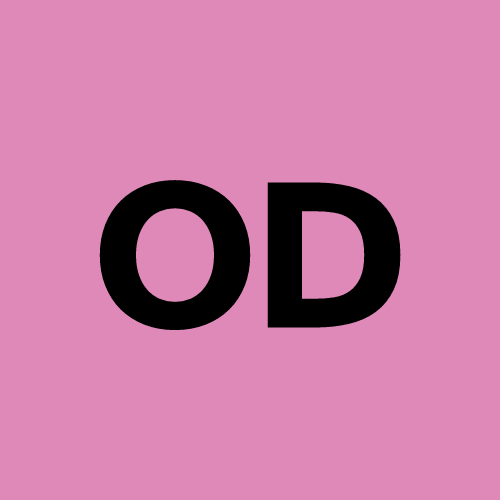Why Android Developers Prefer Kotlin + Jetpack for Mobile App Success
 Olivia Davis
Olivia Davis
To enhance app quality, speed up development, and ensure maintainability, Android developers now regard Kotlin in combination with Jetpack (notably Jetpack Compose) to be the gold standard. That is why top developers are abandoning boilerplate Java code as well as XML-heavy user interfaces and opting for the powerful combination of Kotlin + Jetpack (notably Jetpack Compose).
This innovative blend is revolutionizing Android development norms, be it launching a complex e-commerce app or writing a data-rich enterprise application. Let's discover why it's becoming popular with developers and enhancing client success. If you're planning a project and want to build smarter from the start, it's a good time to consider hiring Kotlin Android developers.
1. Kotlin: The New Language That Conquered Android
a) More Expressive, Safer, and Shorter
Relative to Java, Kotlin reduces boilerplate and verbosity by a huge amount, making code simpler to read and write. This leads to fewer bugs and an improved process of development. As Google's own statistics, Kotlin apps in Android can even be 20% less prone to crashing.
b) Risk-free migration and interoperability
Developers can move codebases incrementally without rewriting entire modules since Kotlin and Java are perfectly compatible. Due to its flexibility, Kotlin became a great and preferable alternative.
c) Growing Popularity and Adoption
Adoption accelerated after Google declared Kotlin as "first-class" in 2017. Kotlin will be utilized by a considerable percentage of the top Android apps by mid-2025; Compose's inclusion fuels this trend.
d) Improved App Quality
Empirical evidence has shown that Kotlin improves code quality by reducing "code smells" in Java-native products. Moreover, Kotlin open-source projects normally gain more GitHub stars, reflecting an increased relationship between Kotlin adoption and popularity measures.
e) Multitarget Potential
Kotlin enables multiplatform development alongside Android. Even Compose Multiplatform, which is a part of Jetpack Compose, allows for shared user interface code for desktop, web, and iOS.
2. Jetpack (Libraries & Compose): The Ultimate Toolkit
a) Jetpack Libraries Simplify Development
Android Jetpack is a collection of libraries, tools, and architecture guidelines to simplify boilerplate reduction and best practices—allowing developers to concentrate on distinctive features rather than boilerplate code.
b) Jetpack Compose: Declarative, Kotlin‑First UI
Compose superseded outdated XML with a complete Kotlin-centered, declarative UI model. Developers specify UI explicitly in code, which makes it more natural, concise, and manageable.
c) Speed, Performance, and Tooling
Compose speeds up development by avoiding XML-Kotlin switching, allowing live previews, faster UI rendering, and native integration with Android Studio, including autocompletion and debugging.
d) Adaptive, Efficient UI Rendering
Compose employs a reactive model, wherein UI updates are triggered automatically in response to state changes, minimizing bugs and maximizing performance.
e) Industry-Backed Momentum
As of 2024, about 40 % of the top‑1000 Play Store apps were utilizing Compose—doubling from 16 % in 2022. Heavy hitters such as Instagram, Threads, and segments of Android Settings utilize Compose in. Meta, for instance, developed Threads in five months with Compose.
3. Competitive Advantage: Why the Combo Wins
By eliminating XML and boilerplate, Kotlin with Jetpack Compose speeds up development.
It saves time and effort for developers as they are able to create user interfaces in code.
The readability of code and null safety due to Kotlin's easy syntax reduce defects and increase app stability.
Especially on big projects, the integration of Jetpack's structure with Compose's modularity makes scaling and maintenance of apps easier.
It enables teams to share code between web, iOS, and Android with Kotlin Multiplatform and Compose Multiplatform, setting the stack up for future cross-platform growth.
Finally, by offering a more streamlined workflow and an overall more enjoyable coding experience, this modern toolkit makes developers happier.
Trend Alignment — What's New in 2025?
Kotlin remains the language of choice for Android due to its official sanction and modern-day grammar.
Compose is certainly better than XML because it provides improved efficiency, readability, and debugging.
With proper use, Compose enhances performance, scalability, and implementation of design, thus being more than just "cool" for developers.
Conclusion
Kotlin with Jetpack Compose is a strong combination for modern Android programming: a simple, powerful UI framework meets a language that is expressive, secure, and forward-looking. Together, they deliver unparalleled scalability, productivity, and app quality, thus making this combination the savvy choice for developing successful mobile apps in 2025 and later.
Subscribe to my newsletter
Read articles from Olivia Davis directly inside your inbox. Subscribe to the newsletter, and don't miss out.
Written by
